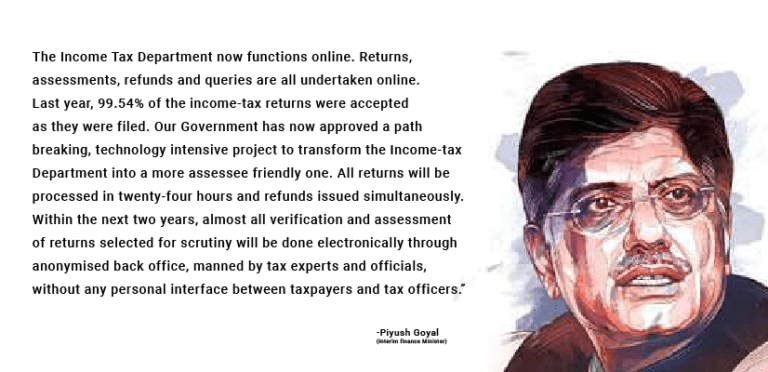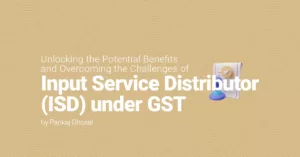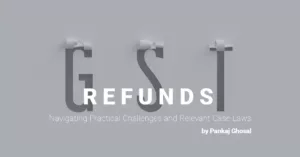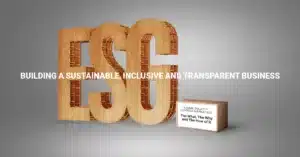Attitude of the tax administrations globally has been transitioning from a ‘command and control’ model to a model of ‘voluntary compliance’. The need for migration has also been appreciated by the Indian Tax authorities. This is evident from the recent amendments brought into the Income Tax Return forms wherein the individuals would be required to disclose the shareholding held by them in closely held companies.
Year on year, the Board has been making changes to the information that is required to be disclosed in the Income Tax Return forms to alarm the taxpayers about the attitude of the tax administrations towards them and also to alert them on the matters that they are looking for in the Income Tax Return. TDS, TCS, AIR and SFT are all such measures to ensure increased voluntary compliance amongst the citizens.
Apart from the compliances, efforts are also being made on easing of the Tax administration for the taxpayers. The advent of GST, stability on angel tax, improved efficiency amongst the bureaucrats and development of systems to ensure more certainty on the taxability of transactions are all signs and measures taken by the Government to make the Indian environment conducive for global businesses.
Setting up of a Tax Administration Reforms Commission (‘TARC’) was another such move in the direction of easing the tax administration for the taxpayers. The objective of setting up TARC was to give recommendations to the Government for reviewing the public Tax administration in India. One of the important recommendations of TARC has been industry-based jurisdiction instead of the current system of territorial revenue collection for direct taxes in the country. Once implemented, this would bring in the much-needed efficiency and will also provide a boost to the administrative system that would ultimately benefit the taxpayers immensely.
The Hon’ble Finance Minister in his Interim Budget speech of 2019-20 acknowledged the need for online functioning of the Income Tax Department. It is imperative to mention few excerpts from his budget speech, as depicted below:

An important initiative that has been taken under the Digital India scheme is the launch of the E-Sahyog project which enables to rectify any mismatches in the Income Tax Return on the online portal of Income Tax without having the taxpayer to physically visit the Tax Office. The system is also efficient in a way as it provides an opportunity to rectify the mismatch without having the Income Tax return of the taxpayer picked up for detailed scrutiny. Also, the benefit of complete transparency with this project would definitely reduce the fear amongst the taxpayers of receiving a notice.
Other than the above, introduction of e-assessments or paperless audits, electronic processing of the Income Tax Returns and speedy remittance of Income Tax refunds are also a welcome step introduced by the Government to increase fair play and transparency into the system.
As per a recent report, 92% of the Income Tax returns filed were processed within 60 days and 90% of the refunds were also issued within 60 days. Further, the Government is working on a system whereby the Income Tax Returns along with the refunds will be processed within a single day. Such systems, if brought into place, would develop confidence amongst the citizens towards the Government and will also motivate more and more citizens to file their Income Tax returns.
All in all, it may be said that Government is actively working towards a more conducive and a transparent environment for the taxpayers. Considering that India is increasingly becoming the sought-after market for international investors, these measures would definitely go a long way in building the investors’ confidence and also boosting foreign direct investment (FDI) into India.










